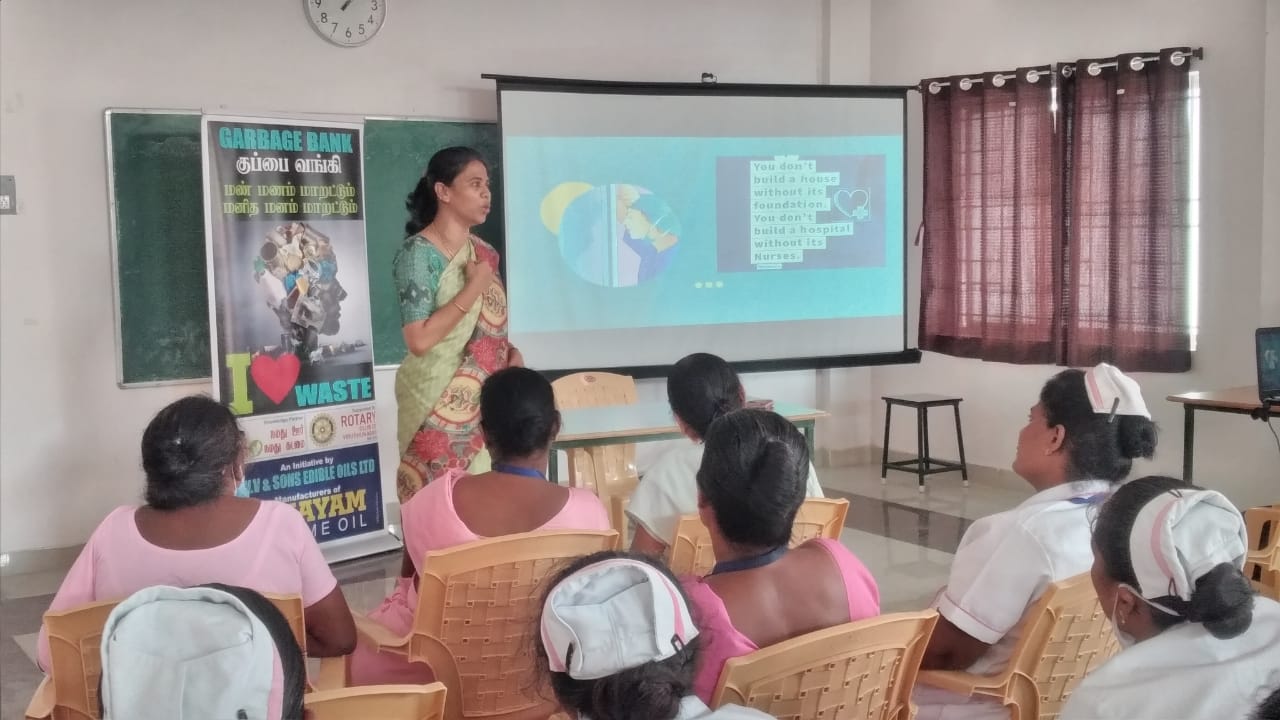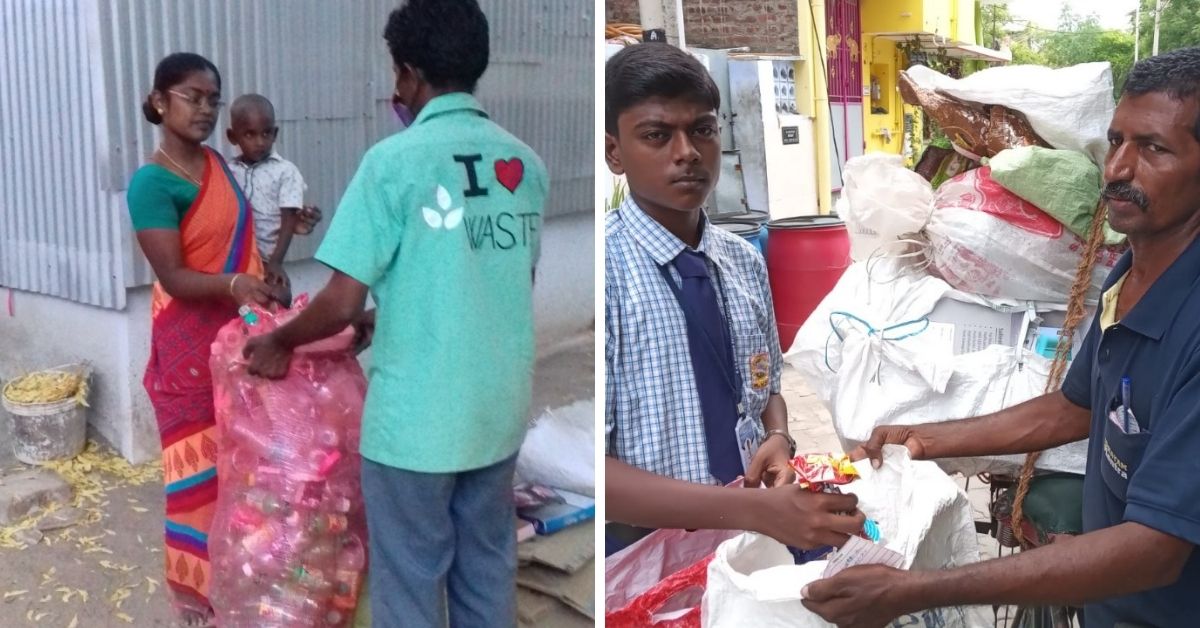Revathy Rajasekaran, the former entrepreneurship development cell coordinator of V V Vanniaperumal College for Women, Virudhunagar, would consistently instruct her students to segregate waste based on its type. Her department went on to install three different bins in each class for biowaste, plastic and paper. Eventually, when the whole college followed the method, there was a huge amount of garbage – which they couldn’t dispose of. But that’s when she reached out to Garbage Bank, to fix this.
When it comes to garbage – segregation, upcycling and recycling – this ‘bank’ has a unique system that can address the issue at any scale.
“We started this work six years back with the realisation that mixed garbage is a huge environmental issue that should be solved at the grassroots level. Our objective is to educate, empower and enrich. In order to achieve this, we visit schools, colleges, hospitals, residential communities and other institutions. We take classes, we teach people how to separate waste and collect garbage in order to recycle as well as upcycle,” says Rajavalli Rajiv, a member of the Garbage Bank.

There are a total of 15 volunteers to conduct classes and collect waste from different locations in Virudhunagar. “We started off as an educational forum by holding classes and workshops only. It was then we were instructed by some professionals that we should get to the next level and don’t just educate people. That’s when we began garbage collection,” adds the 34-year-old.
The group has held over 130 awareness and educational sessions on waste management for students, teachers, homemakers and the general public. Through these sessions, over 500 families in Virudhunagar have made waste segregation at the source a practice. To date, 43,367 kg of waste has been collected and recycled.
The group holds two Guinness world records– for the largest lesson on recycling with 17,303 school and college students and the highest number of plastic bags recycled within eight hours (2,37,900 bags).
How does the bank work?
According to Rajavalli, Garbage Bank is an idea that anyone can implement. They have installed three green points in various parts of Virudhunagar where people can dump their separated garbage. “If someone else is interested in installing such points, we provide help and prototypes too,” she says.
The collection is done geographically. A person or group of persons are assigned on different days at different locations. In other cases, people call us directly when their bins are full which we go and collect as soon as possible. The biowaste is used to make compost and the rest is recycled. “Our slogan is ‘No more dumpyards’ and we are surely going to achieve it. Virudhunagar is only the beginning. We hope more such groups get inspired and start similar activities in their towns/ villages,” says Rajavalli in a voice full of hope.
“We are not a formal organisation because all members here have full-time jobs. There are entrepreneurs, school principals, IT professionals and teachers. They make use of their free time to engage in these activities,” adds Rajavalli who works with the administration team of a school and as a designer in a boutique.
All members of the group fall between the age group of 20 – 35. “We take help from an external organisation to recycle the waste that we collect. “If we go to them with 20 or 20 packets, they won’t take. That’s the reason why we started collecting waste in bulk. We also use paper waste to upcycle them into notebooks which are distributed for free to school students. The name Garbage Bank was selected because the team considers waste as a treasure from which more things can be created, explains Malarvazhi Muthu, the project head of Garbage Bank.
The team shares that they have nothing against the municipality. “They are doing good work but we are trying to help them as people don’t segregate waste when it is handed over to the municipality workers. If they are aware of its significance, this mess will no longer happen,” she adds.
The team officially started their regular operations two years back and has been successful in changing the mindset of people. “We are glad that people understand what we try to convey and it happens mainly through kids. They comprehend and act quickly which makes our job a lot easier. We also make them take pledges after the classes,” shares Rajavalli.
The group is expecting to expand their activities with more members from different locations in the upcoming months.
If you are interested in the activities of Garbage Bank, connect with them on Facebook or Instagram or their website.
Edited by Vinayak Hegde
If you found our stories insightful, informative, or even just enjoyable, we invite you to consider making a voluntary payment to support the work we do at The Better India. Your contribution helps us continue producing quality content that educates, inspires, and drives positive change.
Choose one of the payment options below for your contribution-
By paying for the stories you value, you directly contribute to sustaining our efforts focused on making a difference in the world. Together, let's ensure that impactful stories continue to be told and shared, enriching lives and communities alike.
Thank you for your support. Here are some frequently asked questions you might find helpful to know why you are contributing?

